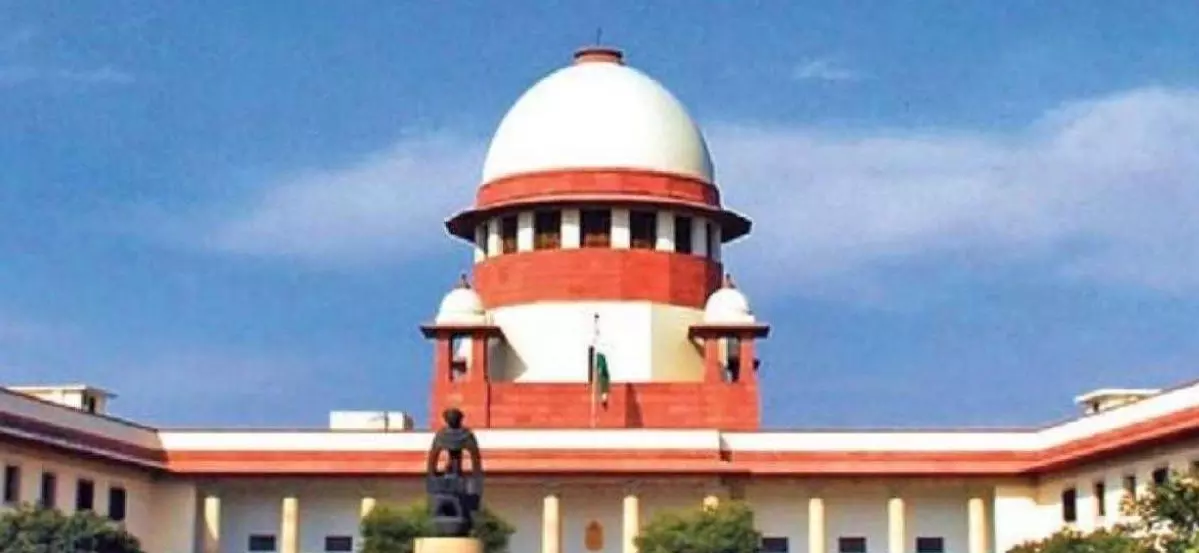
CBI need not obtain permission to probe cases before 2014: SC
text_fieldsNew Delhi: The Supreme Court in a landmark judgement has decreed that once a law is declared unconstitutional on the basis of it being found to be against the fundamental rights enshrined in the Constitutions, the impugned law will have retrospective, and it would be deemed unenforceable right from the date of its enactment.
A constitutional bench comprising Justices Sanjay Kishan Kaul, Sanjiv Khanna, Abhay S Oka, Vikram Nath, who authored the judgement, and JK Maheshwari, recalled its 2014 judgement in which a law regarding the functions of the CBI (Central Board of Investigation) was declared null and void on the ground that it violates fundamental rights. As per the latest judgement issued on Monday, the law under Section 6A of the Delhi Special Police Establishment Act 1946, which governs the functions of the CBI, was held unconstitutional.
The court said, “It is crystal clear that once a law is declared to be unconstitutional, being violative of Part III of the Constitution, then it would be held to be void ab initio, stillborn, unenforceable and non est in view of Article 13(2) of the Constitution and its interpretation by authoritative pronouncements. Thus, the declaration made by the constitution bench in the case of Subramanian Swamy will have retrospective operation. Section 6A of the DSPE Act is held to be not in force from the date of its insertion i.e. September 11, 2003.”
The court had completed its hearing and reserved judgment in November last year, on the issue whether its 2014 judgment in Subramanian Swamy v. Union of India striking down Section 6A(1) of the Delhi Police Special Establishment Act, 1946, which mandated central government sanction for investigations involving certain government officials, would retrospectively apply to pending cases. The 2014 judgement had declared invalid the legal provision mandating the CBI to take prior permission before investigating corruption cases against senior government officials.
This means that senior government officials involved in corruption cases even before the date of the Supreme Court judgment would no longer be able to avail the protection of prior sanction
This case stemmed from an arrest made without prior sanction and the action was challenged on the strength of the now nullified law by which the CBI had to obtain approval of the government before investigating an officer of the rank of joint secretary and above in corruption cases.
The Delhi High Court ruled that since the Central Bureau of Investigation had initiated the investigation before the arrest, the exception contained in Sub-section (2) of Section 6A for spot arrests would not be applicable. Accordingly, the high court directed the agency to seek the central government's approval for reinvestigation.
This decision was challenged by the CBI in the Supreme Court in 2007, but while the matter was being heard, Section 6A was declared unconstitutional in Subramanian Swamy (2014). However, the applicability of this ruling to pending cases remained unclear, which is why the issue was referred to a constitution bench in the current case. Monday's judgement came in response to this question.
Justice Nath also held that Article 20(1), which mandated that a person should only be convicted under a law which was in force at the time of the crime, had “no applicability or relevance to the validity or invalidity of Section 6A of the DSPE Act”.
(With inputs from LiveLaw)























